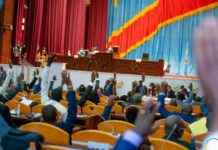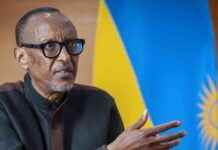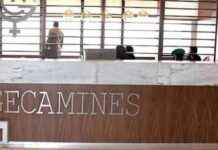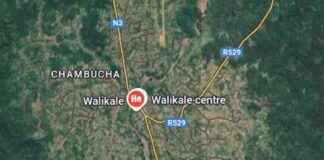Breaking News: Ratification of Hydrocarbon Exploitation Law in DRC
In a groundbreaking development, the law authorizing the exploitation of hydrocarbons and common deposits between the governments of Uganda and the Democratic Republic of Congo has been promulgated by President Félix-Antoine Tshisekedi. This law, numbered 24/022 and adopted by both chambers of parliament in the September session, paves the way for cooperation in the lucrative field of hydrocarbon extraction.
Key Details of the Agreement
The ratification agreement, signed in Kampala on June 23, 1990, and January 25, 2008, aims to prevent unilateral exploitation or intentional border modifications by Uganda in favor of common hydrocarbon deposits along the border. Minister of Hydrocarbons, Aimé Molendo Sakombi, highlighted the importance of joint development and exploitation of these shared resources to ensure equitable benefits for both nations.
During the 23rd meeting of the Council of Ministers on November 22, 2024, Minister Sakombi emphasized the need to facilitate comprehensive geophysical activities and oil exploration in the Probable Zone of Common Interest (ZIC) with Uganda. The ratification of this agreement sets the stage for implementing recommendations outlined in the Ngurdoto agreement, signed in Tanzania on September 8, 2007, focusing on bilateral cooperation between DRC and Uganda.
Stable Relations and Strategic Collaboration
Since assuming office, President Tshisekedi has fostered stable and productive relations with Uganda under the leadership of President Yoweri Museveni. Beyond economic cooperation, the two nations collaborate on security issues, particularly in combating armed groups like the ADF in the Eastern regions of DRC, including North Kivu and Ituri.
Constitutional Implications and Legal Framework
The ratification of this agreement aligns with Article 214, paragraph 1 of the DRC Constitution, which mandates that treaties involving peace, trade, international organizations, financial commitments, legislative modifications, and territorial changes must be ratified through legislation. This legal framework ensures transparency and accountability in international agreements that impact the nation’s interests.
As the DRC embarks on a new chapter of collaboration with Uganda in hydrocarbon exploitation, the promulgation of this law signifies a significant step towards sustainable development and equitable resource management for both nations.
This rewritten article provides a comprehensive overview of the key details surrounding the ratification of the hydrocarbon exploitation law in the DRC, highlighting the implications for bilateral cooperation, legal frameworks, and shared resource management. The narrative structure follows the Inverted Pyramid model, presenting critical information upfront and delving into supporting details to offer a balanced perspective on this groundbreaking development.














![Rwanda RDC Conflict: Security Council Must Take Sides [Opinion Piece] rwanda-rdc-conflict-security-council-must-take-sides-opinion-piece](https://congotvnews.com/wp-content/uploads/2025/01/rwanda-rdc-conflict-security-council-must-take-sides-opinion-piece-324x160.jpg)


